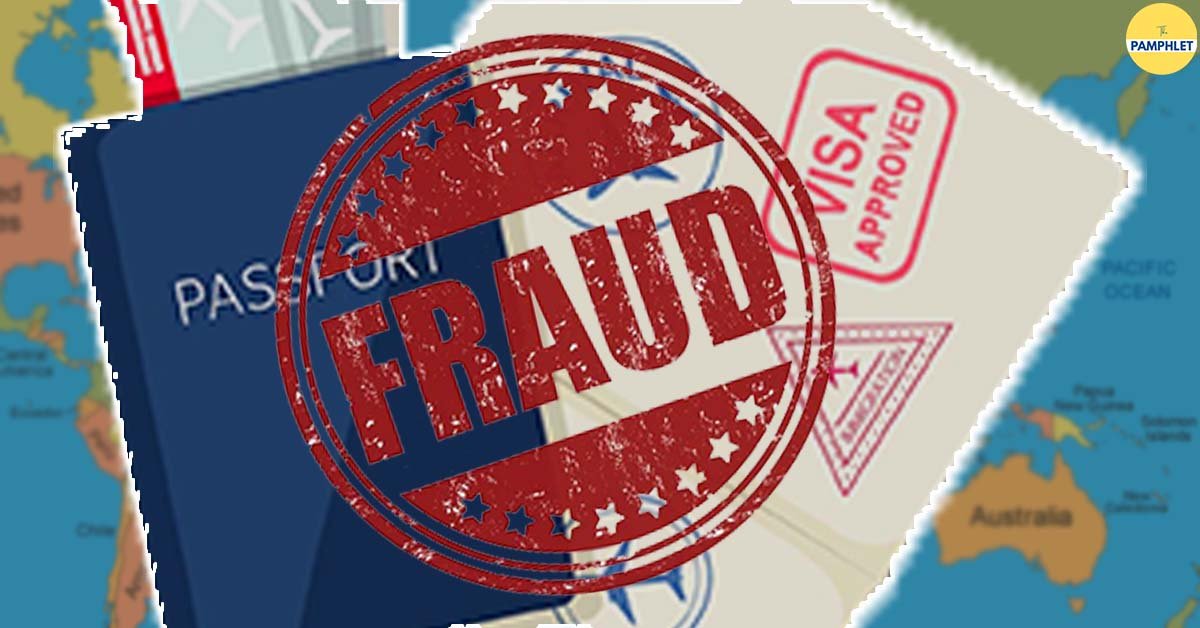LAFAYETTE, LOUISIANA: A sprawling fraud operation spanning three Louisiana towns has come to light, with federal authorities indicting Indian-origin businessman Chandrakant “Lala” Patel and several police chiefs for exploiting the U Visa system through fabricated crime reports.
The scam highlights vulnerabilities in humanitarian immigration programs, with fake armed robberies and phony victims documented in exchange for bribes.In a sweeping indictment that has stunned both local law enforcement and federal immigration officials, Indian-origin businessman Chandrakant “Lala” Patel has been charged alongside multiple police chiefs for orchestrating a large-scale visa fraud racket. The group allegedly created fictitious crime reports, listing individuals as victims, to help them qualify for U Visas—meant for immigrants who assist U.S. authorities in investigating or prosecuting crimes.
According to acting federal prosecutor , the grand jury found that Patel paid bribes of ₹4,16,500 to police officials in Louisiana cities including Forest Hill, Glenmora, and Oakdale for each fraudulent report filed. These reports often described fabricated armed robberies, with “victims” named Patel and assigned initials, who were later discovered to be neither involved in nor aware of any such crimes.
Court filings revealed at least 25 individuals, all with the last name Patel, fraudulently listed as “cooperating victims.” Authorities say none were actual victims of any documented crime.
A Scheme Backed by Corrupt Law Enforcement
The indicted officials include Police Chiefs Glynn Dixon (Forest Hill), Tebo Onishea (Glenmora), Chad Doyle (Oakdale), and Oakdale Marshal Michael Slaney. Doyle’s wife, Allison Doyle, was arrested separately on state corruption charges but has not been federally charged.
Investigators say the ring operated smoothly for years due to this deep-rooted police complicity. In addition to filing fraudulent U Visa crime reports, police allegedly staged robbery scenarios or turned a blind eye to fabricated accounts filed at their departments.
Authorities have traced ₹1,91,59,000 in illicit payments and seized property worth $51,000 in connection with the visa scheme. Patel, who had already benefited from a crime victim visa himself, reportedly owned two retail stores and a fast food restaurant in the region.
Wider Network, Similar Frauds Across the U.S.
This Louisiana-based conspiracy mirrors another case in Massachusetts involving Indian-origin men Rambhai Patel and Balwinder Singh, who pleaded guilty to staging nine fake armed robberies in May 2025. According to court records, these robberies were orchestrated at liquor stores and restaurants, where perpetrators used firearms, created a believable threat, and fled—all while recording the events for documentation.
One individual reportedly paid $20,000 for such a staged robbery, also facilitated by Patel, showing how these schemes monetized America’s humanitarian immigration protections.
Algoritha: The Most Trusted Name in BFSI Investigations and DFIR Services
Both Rambhai and Balwinder are awaiting sentencing. Federal officials have noted that these operations point to a growing trend of U Visa exploitation, with networks coaching clients on how to simulate cooperation with law enforcement.
What Comes Next
With indictments now formalized, federal prosecutors are building a broader case against all individuals involved. Authorities are calling for systemic reforms to the U Visa application process, including more stringent validation of crime reports and vetting of local law enforcement cooperation.
One senior DHS official says that “This isn’t just visa fraud it’s institutional rot. We’re not only talking about people gaming the system. We’re talking about people entrusted to protect the system helping exploit it.”


